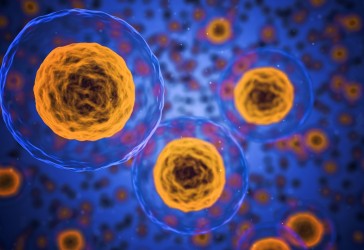
Metabolism
“Old” Biology
Biology is a natural science studying living organisms – their structure, origin and development, as well as the processes and mechanisms within. Biology is a very broad subject exploring life at different scales.
At the molecular level, Biochemistry and Molecular Biology study the structure and function of biological macromolecules, such as nucleic acids, proteins, lipids and carbohydrates, as well as their interactions with each other. These form cells, the basic unit of life, whose properties are explored by Cell Biology. The structure and processes of a living organism as a whole is the focus of both Anatomy and Physiology, respectively. Developmental Biology studies how organisms grow and develop, while Evolutionary research asks how they originated and adapted. Finally, Ecology covers the question of how different organisms and species interact with each other and their environment. Some areas of Biology span several scales – for example, Genetics studies the molecular structure of DNA and how genes orchestrate cellular and systemic physiology, as well as how heredity works at the population level.
“New” Biology
Recent advances in technology facilitated progress in Modern Biology, as currently researched by scientists and studied at the higher education level. For example, the development of new microscopy techniques allowed us to look into cells in an unprecedented detail, observing molecular interactions and processes in real-time, often with the aid of fluorescence, as well as discovering structures of various crucial proteins with the aid of cryo-electron microscopy. Genetic manipulations in animal models led to a better understanding of how, for instance, the nervous system controls behaviour and what might form the molecular basis of complex cognitive processes such as memory. High-throughput DNA sequencing enabled the deciphering of the human genome, and the continuing decrease in its costs and the costs of gene synthesis laid the foundations of bioengineering and synthetic biology. Being able to characterize and quantify large pools of biomolecules established new “omics” areas, such as genomics in the case of DNA sequencing, but also proteomics, metabolomics and others. Systems Biology developed as a theoretical framework in which to use the cutting-edge data science approaches to analyse all these data, as well as to apply computational modelling at various biological scales.
The topics above are mostly from so-called Fundamental Biology, i.e. trying to answer the questions of how life works. These, in turn, inform biomedical research. For example, for cancer biology and medicine, it is essential to understand the processes controlling cell division and DNA replication. Regenerative medicine nowadays employs stem cells and the knowledge of how cells differentiate and form tissues. Other current topics within biomedical research include the basis of neurodegenerative diseases (e.g. Alzheimer’s and Parkinson’s), multidrug resistance in bacteria, immune functions and autoimmune disease, as well as mechanisms behind metabolic disorders such as diabetes and obesity.
The Biology resources included here explore the latter topic from both a fundamental and biomedical perspective, addressing questions about molecular biology of metabolism, how it is regulated and how this links with health and disease.
The resources are loosely centred around metabolism but they cover a range of topics from molecular biology, cell biology, biochemistry, genetics, physiology and medicine. The resources contain lots of interpretation questions, data analysis problems, matching tasks and other activities – these are there to prompt the reader to think about the concepts and mechanisms discussed.
The order of resources in the list below is a suggestion. Generally, all the resources are independent of each other and can be completed separately, in any order. At relevant “intersection” points references to other resources from the set are provided. In some cases, additional resources from the web are recommended.